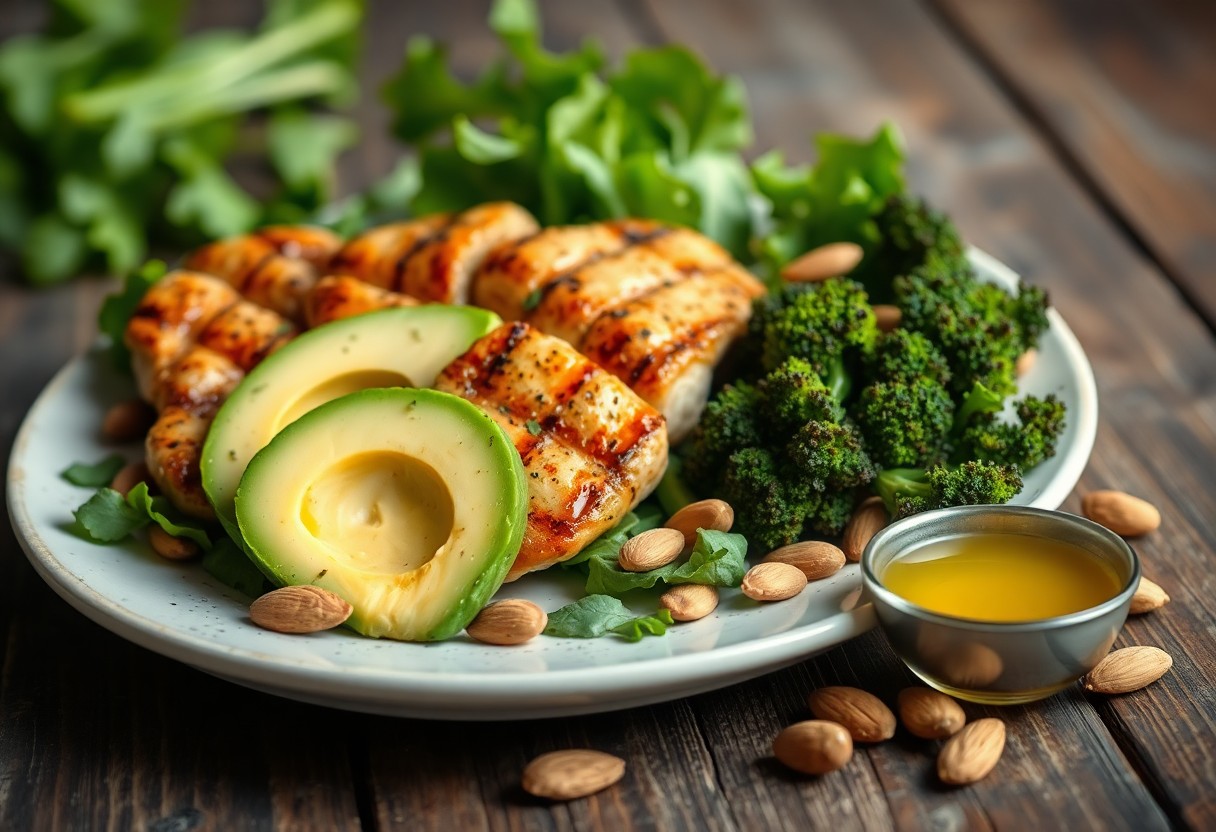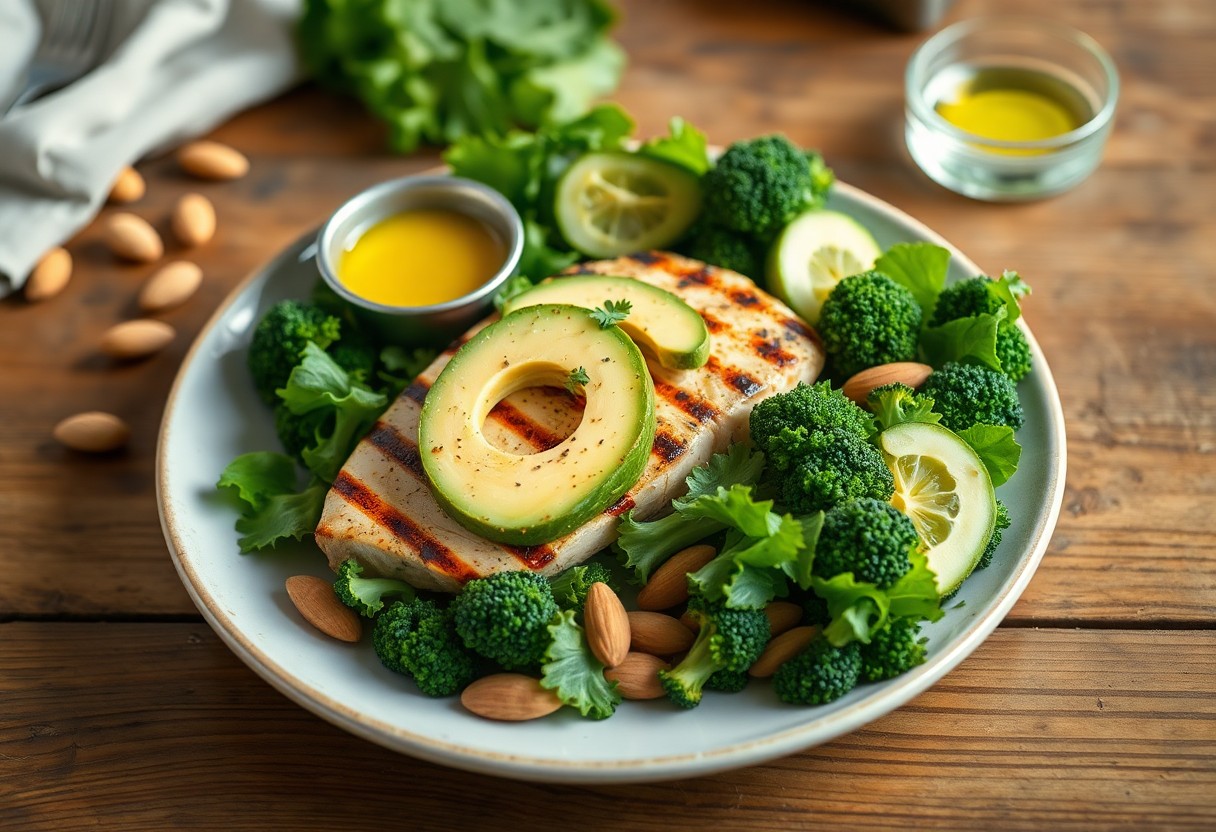Keto is not just a diet; it's a lifestyle choice that can transform your health and help you shed unwanted fat. To achieve optimal results, you'll need to focus on the right foods that align with your low-carb, high-fat regimen. In this post, we’ll explore the best keto diet foods to incorporate into your meals, ensuring you not only reach your fat loss goals but also enjoy delicious and satisfying options along the way. Get ready to discover how you can supercharge your fat-burning journey with these nutrient-dense foods!

Understanding the Keto Diet
Before begining on your keto journey, it's important to familiarize yourself with the fundamentals of this low-carb diet. The ketogenic diet focuses on high-fat, moderate-protein, and low-carb foods, aiming to shift your body into a state of ketosis, where it burns fat for fuel instead of carbohydrates. For a detailed guide, check out 20 Foods to Eat on the Keto Diet.
What is the Keto Diet?
On the keto diet, you significantly reduce carbohydrate intake and replace it with healthy fats. This reduction in carbs puts your body into ketosis, a metabolic state that promotes fat oxidation for energy instead of relying on glucose from carbs. As a result, your body becomes a fat-burning machine, making it an appealing option for those seeking weight loss.
Benefits of the Keto Diet for Fat Loss
Diet benefits you may experience on the keto diet include reduced appetite, improved energy levels, and increased fat burning. This is largely due to the way your body metabolizes fats when in ketosis, leading to more effective weight loss compared to traditional diets.
It is important to note that the keto diet can help you maintain muscle while losing fat, unlike many conventional diets that can lead to muscle loss. Additionally, the sustained energy levels you gain from a high-fat intake can prevent those energy crashes often experienced on high-carb diets, allowing you to consistently push through workouts and daily activities. This combination of fat-burning and muscle preservation can make your weight loss journey both effective and sustainable.
Essential Keto Foods
Some key ingredients will help you thrive on the ketogenic diet. Foods rich in healthy fats, low-carb vegetables, and quality protein sources are necessary for achieving fat loss while maintaining a balanced nutrient intake. Incorporating these foods can help you stay in ketosis and fuel your body efficiently, making your keto journey more productive and enjoyable.
Healthy Fats
After establishing your meal plan, focus on incorporating healthy fats into your diet. This includes avocados, olive oil, coconut oil, and grass-fed butter, which not only help you meet your fat intake goals but also provide necessary nutrients to support overall health. Consuming these fats can enhance satiety, keeping you satisfied for longer periods while you pursue your fat loss goals.
Low-Carb Vegetables
Against the misconception that all vegetables are high in carbs, many low-carb options are perfect for your keto diet. Leafy greens such as spinach, kale, and arugula, as well as cruciferous veggies like broccoli and cauliflower, are loaded with vitamins and minerals without spiking your carbohydrate intake. These vegetables can also add bulk to your meals, helping you feel full while staying within your carbohydrate limits.
Even on a low-carb diet, you don’t have to give up nutrition. Low-carb vegetables are not only rich in fibers but also offer a wealth of antioxidants that can bolster your health and aid digestion. Incorporating these veggies into your meals can enhance flavor and variety, making your keto experience more enjoyable and sustainable. Whether you choose to roast, steam, or salad, these vegetables are valuable allies in your journey towards fat loss.

Protein Sources on Keto
All keto dieters need to prioritize quality protein sources to support muscle maintenance and fat loss. Incorporating the right types of protein will help you stay satiated and energized throughout your day while adhering to your dietary goals.
Quality Meat Options
An excellent way to enhance your keto diet is by focusing on quality meat options. Grass-fed beef, free-range chicken, and wild-caught fish provide clean protein sources rich in omega-3 fatty acids and important nutrients, helping you maintain optimal health while losing fat.
Plant-Based Proteins
Around your keto journey, you might find value in integrating plant-based protein sources. Foods like tofu, tempeh, and seitan can complement your meals, providing you with important amino acids without relying solely on animal products. They can also add variety to your diet, making it more enjoyable.
In addition to tofu, tempeh, and seitan, other plant-based options like edamame, hemp seeds, and chia seeds can be beneficial. These options are often low in carbs and high in fiber, promoting satiety while supporting your protein needs. Incorporating a mix of these plant-based foods can diversify your diet and ensure you're getting a wide range of nutrients while remaining within your keto framework.
Dairy and Alternatives
For a successful keto diet, incorporating dairy and its alternatives can support your fat loss journey. These options are low in carbs while offering healthy fats. Explore 11 Foods You Can Eat on the Keto Diet to expand your meal ideas.
Keto-Friendly Dairy Products
Any effective keto diet can include delicious dairy products such as cheese, butter, and heavy cream. These foods are low in carbohydrates and high in fat, which makes them perfect for keeping you satiated while promoting fat loss.
Non-Dairy Alternatives
Non-dairy alternatives can also fit seamlessly into your keto lifestyle. Options like almond milk, coconut yogurt, and cashew cheese are low in carbs and offer a variety of flavors and textures.
Consequently, these non-dairy products not only cater to lactose intolerance or dairy sensitivities but also maintain the nutritional benefits needed for your keto plan. You can enjoy rich tastes without the added sugars found in conventional dairy, ensuring that you stay on track with your fat loss goals.
Snacks and Treats
Despite popular belief, snacking on a keto diet doesn’t have to lead to weight gain. Instead, you can indulge in a variety of delicious and satisfying snacks that align with your low-carb lifestyle. By choosing the right options, you will not only satisfy your cravings but also support your fat loss goals while keeping your energy levels high.
Low-Carb Snack Ideas
At any time of the day, you can enjoy low-carb snacks like cheese cubes, olives, or sliced vegetables paired with avocado dip. Nuts such as almonds and macadamias also make great grab-and-go options. You can even whip up some homemade pork rinds or keto-friendly beef jerky to keep your snacking enjoyable without sabotaging your diet.
Keto Desserts
Between meal options, satisfying your sweet tooth on a keto diet is completely possible with a variety of decadent keto desserts. You’ll find plenty of treats that use low-carb sweeteners and high-fat ingredients, ensuring you indulge without the guilt.
This approach to desserts allows you to enjoy delicious options such as chocolate mousse, cheesecake made with almond flour crust, or coconut flour brownies. By using ingredients like erythritol or stevia as sweeteners and incorporating healthy fats from nuts, avocados, or creamy dairy, you can create a satisfying dessert that aligns with your keto diet while still keeping your goals in check.
Foods to Avoid on Keto
Your success on the keto diet largely depends on the foods you choose to eliminate. Steer clear of high-carbohydrate foods like grains, legumes, and starchy vegetables, which can spike your insulin levels and hinder fat loss. To discover more about what you can enjoy, check out 25 Foods You Can Eat on the Keto Diet - Health.
High-Carbohydrate Foods
At the center of the keto diet philosophy is the reduction of high-carbohydrate foods which include bread, pasta, rice, and sugary snacks. These foods can quickly exceed your daily carb allowance, preventing your body from entering ketosis.
Hidden Sugars and Starches
Above all, it’s important to be wary of hidden sugars and starches in seemingly healthy options. Packaged foods, sauces, and condiments often contain added sugars that can disrupt your progress.
Consequently, checking labels becomes imperative as many products contain unexpected sources of sugar and carbohydrates. Items like salad dressings, granola bars, and “low-fat” products may carry hidden sugars that do not align with your keto goals. To stay on track, focus on whole, unprocessed foods and always read ingredient lists carefully.
Final Words
Following this guide to the best keto diet foods can significantly enhance your fat loss journey. You should focus on high-quality fats, lean proteins, and low-carb vegetables to optimize your results. Incorporating foods like avocados, fatty fish, and leafy greens into your meals will not only help you shed unwanted pounds but also support overall health. By making informed dietary choices and remaining consistent, you can successfully achieve your weight loss goals while enjoying a satisfying and fulfilling keto lifestyle.
FAQ
Q: What are the best protein sources for a keto diet?
A: On a keto diet, it's crucial to choose high-quality protein sources that are low in carbohydrates. Some of the best options include grass-fed beef, free-range chicken and turkey, fatty fish like salmon and mackerel, eggs, and plant-based proteins such as tofu and tempeh. Opting for proteins that are rich in fat can help you stay within your carb limits while ensuring that you consume sufficient protein.
Q: Are there any low-carb vegetables suitable for a keto diet?
A: Yes, there are many low-carb vegetables that can be included in a keto diet. Dark leafy greens such as spinach, kale, and arugula are excellent choices. Other low-carb options include broccoli, cauliflower, zucchini, bell peppers, and asparagus. These vegetables are not only low in carbohydrates but also packed with crucial vitamins and minerals, making them ideal for a healthy keto plan.
Q: Can I include dairy products in my keto diet?
A: Dairy products can certainly be part of a keto diet, provided they are full-fat and low in carbohydrates. Options like heavy cream, cream cheese, mozzarella, and Greek yogurt can be included, as they offer healthy fats and protein. However, some individuals may be lactose intolerant or sensitive to dairy, so it’s important to pay attention to your body and adjust accordingly.
Q: Which nuts and seeds are best for a keto diet?
A: Nuts and seeds can be great snacks on a keto diet due to their high-fat content and low net carbs. The best choices include macadamia nuts, walnuts, pecans, Brazil nuts, and pumpkin seeds. These are nutrient-dense and provide healthy fats, fiber, and protein. It’s advisable to consume them in moderation, as they can be calorie-dense.
Q: What are some healthy fats to incorporate into my keto diet?
A: Healthy fats are a vital part of the ketogenic diet and should make up the majority of your caloric intake. Some excellent sources include avocado oil, olive oil, coconut oil, and ghee. Additionally, incorporating avocados, nuts, seeds, and fatty fish into your meals can provide crucial omega-3 and omega-6 fatty acids, contributing to a balanced diet while promoting fat loss.

0 Comments